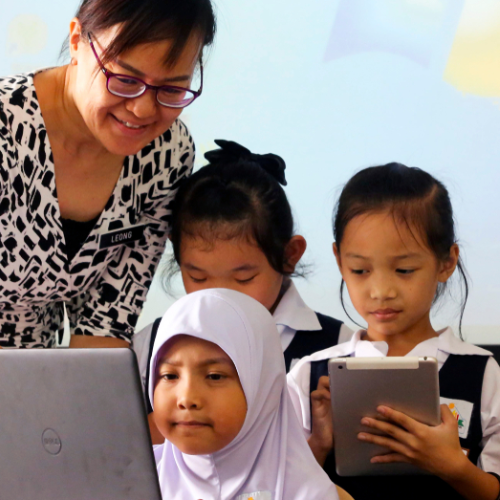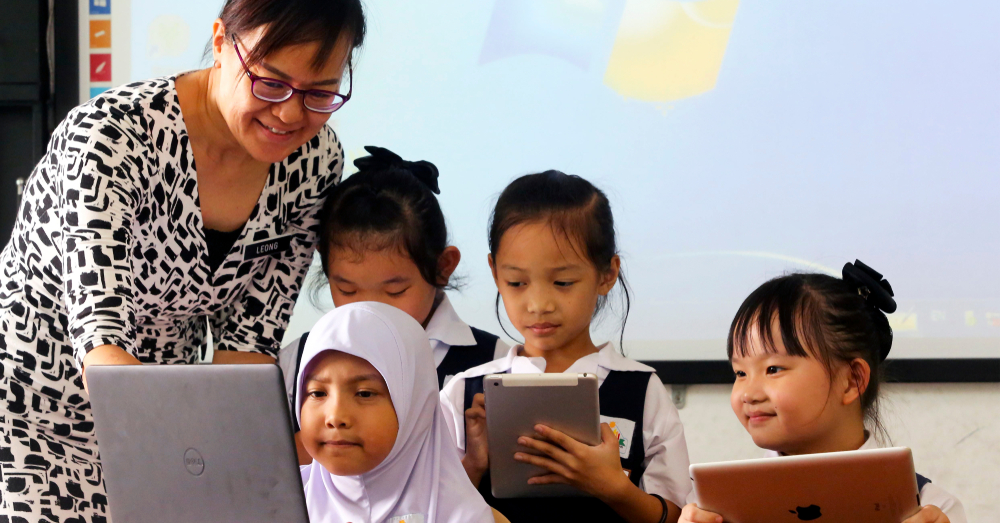In the global education race, Malaysia is not just lagging; it’s plummeting.
A recent World Bank report revealed that only 58% of Malaysian students achieve reading proficiency by the end of Standard 5, falling considerably short of regional averages. In some comparable economies, only 34% of students face similar struggles. Despite spending an average of 12.5 years in school, Malaysian students demonstrate a learning equivalent to just 8.9 years. This is particularly concerning when compared to neighbouring Vietnam, where students achieve 10.7 years of learning within a similar timeframe.
The 2022 PISA scores for the ASEAN region further highlight this issue. Malaysia's score dropped significantly, from 431 in 2018 to 404 in 2022, marking a decline of 6.26%. This adds to a longer trend of underperformance, as Malaysia has consistently scored below the OECD average in all three tested domains (math, reading, and science) since 2008. Conversely, Singapore continues to exemplify educational excellence. Its robust education system has achieved an outstanding PISA score of 560, setting a high standard for others in the region.
The troubling state of education in Malaysia is largely ascribed to the educational disruption caused by the Covid-19 pandemic and the subsequent transition to online learning. This sudden shift has left nearly 4.9 million students, spanning from preschool to secondary school, in a state of flux as educational institutions were forced to close their doors.
The pandemic has turned the clock back, revealing a system ill-prepared for the demands of contemporary education. The quality of teachers in Malaysia now is akin to a sputtering Proton Tiara struggling to keep up with the sleek, new Proton X50 on the highway. The Malaysian education system has constantly been in a state of playing catch-up.
The Skills Gap Hindering Malaysia's Educators
The quality of educators presents an equally troubling picture. A study by EMIR Research highlights that a scant 0.1% of Malaysian teachers hold PhDs, and a mere 3.7% have master's degrees. Compare this to the education systems in China and Japan, where teachers often boast dual PhDs, and it becomes evident that Malaysia’s educators are woefully underqualified.
This lack of advanced qualifications among Malaysian teachers points to a deeper issue: the need for comprehensive professional development and upskilling. The landscape of education is evolving rapidly, particularly with the integration of digital technologies. To bridge the digital divide, it's crucial that Malaysia not only focuses on raising the educational qualifications of its teachers but also prioritises their digital fluency. This dual approach can significantly elevate teaching standards and effectiveness.
In the current educational landscape, digital fluency is not a luxury but a necessity. Teachers today are expected to navigate a complex array of digital tools and platforms, from learning management systems to virtual classrooms. The pandemic has made it clear that the ability to effectively use technology can make or break the learning experience.
Under the current status quo, a staggering 85% of Malaysian teachers reported feeling ill-prepared for this digital shift in a survey by Microsoft and IDC Asia Pacific. This alarming statistic underscores the pressing need for holistic digital training programmes to equip educators with the requisite skills to thrive in the digital age.
The undeniable truth is that the future of education is intrinsically linked to digital technology. While we grapple with a myriad fundamental, systemic challenges, it is imperative to recognise that these issues cannot be effectively addressed without recognising this digital reality.
Equipping Malaysian Teachers for the Digital Age
The pandemic laid bare the profound digital divide that exists within the nation’s education system. Instead of merely trying to restore our education system to pre-pandemic standards, we should aim to turbocharge our teaching force to navigate the fast lane of the digital era.
The solution is not just to provide basic digital training but to embed digital fluency into the core of teacher education. This means moving beyond simple proficiency with tools like Microsoft Office and instead, equipping teachers with the skills to create dynamic, interactive learning experiences online. For instance, educators should be trained in using advanced digital tools like virtual reality (VR) for immersive learning, artificial intelligence (AI) to personalise learning experiences, and big data to track and improve student performance.
Moreover, teachers must be adept at digital citizenship to guide students in navigating the digital world responsibly. This includes understanding online safety, digital ethics, and the ability to critically evaluate online information. In an era of rampant misinformation, these skills are crucial.
One crucial step towards elevating teacher quality through increased digital fluency is refining the selection and training processes. Research from Teach For Malaysia suggests that the initial years of a teacher's career are vital for setting the foundation for long-term effectiveness. Instituting a probationary period for new teachers, alongside robust and continuous development in digital skills, can significantly uplift teaching standards.
To design effective digital fluency learning journey for teachers, it’s important to understand how teachers learn, what drives their desire to learn, and which settings or tools best support their digital growth. Programmes aimed at improving digital competency amongst Malaysian teachers must also account for the various backgrounds (experience, skills, needs, etc.) of the teachers themselves.
In practice, to truly enhance the quality of teachers in Malaysia, a multifaceted approach is necessary. This includes addressing older systemic issues like teacher shortages and low wages, outdated curriculums and syllabi, the English-Bahasa Malaysia debate and so on. Singapore’s "Teach Less, Learn More" initiative serves as an exemplary model, promoting in-depth learning and a holistic approach to education.
The future is not a distant prospect; it is unfolding here and now. The digital revolution in education is already underway, and we find ourselves trailing behind. In 2023, the World Digital Competitiveness index and CISCO ranked Malaysia at 46th place in terms of our human capital preparedness to respond to digital advancement. This positions Malaysia merely at an “accelerate” stage of our digital readiness.
The approach of improving teacher quality in Malaysia through increasing their digital fluency is a leapfrog. We can no longer operate under the assumption that older systemic issues must be resolved first. If we did, we will perpetually be in a state of catch-up. By taking this route, Malaysia can not only recover from the setbacks of the pandemic but also build a robust education system capable of meeting the demands of the future. Through high-quality teachers, we can empower tomorrow’s workforce by ensuring that the students of today can navigate the fast lane of the 21st century, ready to tackle the challenges and opportunities presented by the digital era.


























